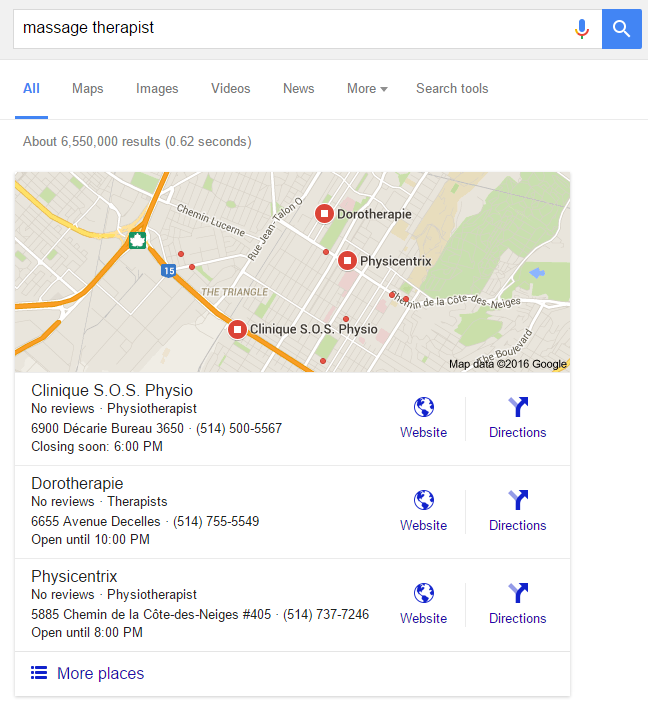
Focusing on SEO in 2017
If you’re a small business owner, it’s going to be important to make sure your business is hitting all the right SEO notes this year. Search experts are predicting that local search is going to become even more competitive in 2017, as Google focuses on delivering more content directly in the search results page.
This means that if you want to reap the benefits that come with ranking well in local search results, you’re going to need to make sure you’re bringing your best. Otherwise, you’ll be left in the SEO dust as your competitors zoom into the remaining organic search real estate.
With this in mind, take a look at the common mistakes small business owners make when it comes to SEO, and make sure your company isn’t making them.
1. Misunderstanding SEO
It’s hard to do a good job or managing your SEO when you don’t really understand what it is that you’re supposed to be doing.
Unfortunately, many small business owners (actually, most people who aren’t SEO professionals) have a fundamental misunderstanding of what SEO is.
In the public’s eye, search engine optimization is about stuffing keywords into websites to help them rank well in search engines. While this is part of what SEO was, once upon a time, trying to improve your site’s ranking with keyword stuffing in 2017 is going to leave you frustrated.
Search engines like Google are focused on providing the best possible search results for their users, and they’ve developed tools to help them understand search intent better than ever before. In 2017, good SEO is about making your website a great resource for users, and showing Google that your site is the best possible result.
If you approach your online marketing with this mindset, you’ll have a lot more success than you will if you’re looking to stuff your site full of keywords for a quick fix.
2. Trying to rank for EVERYTHING
Novice marketers often make a common-sense assumption – the more traffic they can bring to their websites, the better. With this goal in mind, they target hundreds or thousands of keywords in the hope that they’ll be able to rank well for all of them and bring in tons of traffic.
Unfortunately, this common-sense approach rarely works out. There are two main problems here. First, with limited time and a limited budget, it’s very difficult to get your website to rank on the first page for a wide variety of keywords. It’s much easier to focus on a small number of carefully selected keywords.
And this is the second problem with this approach – if you’re trying to rank for everything under the sun, even if you succeed, you’re going to be attracting a lot of traffic from people who will never buy anything from you.
This is why thinking about search intent is so important. You need to optimize your website and create content for the people who are actually interested in buying what you’re selling - otherwise you'll be putting in a ton of work and have nothing to show for it.
3. Neglecting your Google listing

When I search for "massage therapist" Google suggests three local results near me. This is where you want your site to show up.
Way too many small business owners aren’t bothering to claim their Google listings. Why does this matter? Well, when it comes to local search, Google’s local 3-pack is the holy grail. You want to be in that pack of links at the top of the results, or else you’re losing out on a lot of potential business.
To get in that list, you need to be taking care of your business’s online citations and Google My Business listing. The short version is that you need to make sure that your business’s name, address, and phone number are identical everywhere they appear online. This gives Google confidence that your information is correct and they can safely recommend your business.
You also need to either create a Google My Business listing or claim one that has already been created (Google has provided a guide for doing this). Once you have control of your Google listing, you can start collecting reviews. Your rating and reviews will show up directly in the search results, so it’s important to work hard to collect as many positive reviews from your customers as you can manage.
4. Not taking content seriously enough
In 2017, content should be the backbone of your SEO strategy. Content is the main way that Google determines the topic of your website AND content is critical to how Google evaluates the quality of your website.
Huge numbers of small business owners are either not producing any content at all or they’re writing keyword-heavy landing pages, hoping to boost their ranking. That simply isn’t going to work in today’s search ecosystem – in fact in could even get you penalized.
Instead, you need to focus on providing a high-quality experience for people who land on your website. You need to think about why people might be searching for topics related to your business, and then create great, comprehensive content that answers their questions or otherwise gives them what they’re looking for.
We’re all learning
The world of SEO changes quickly, so don’t be embarrassed if you’ve made any of these rookie mistakes. We’re all constantly playing catch up with Google and their policies. The important thing is that you’re willing to learn and adapt your SEO practices.
Have you made any big SEO mistakes while marketing your business? Let us know in the comments or drop us a line on Twitter!




Yup, content is key to SEO and keyword stuffing is definitely a big NO. Great insights Lauchlin!